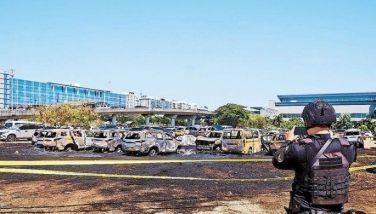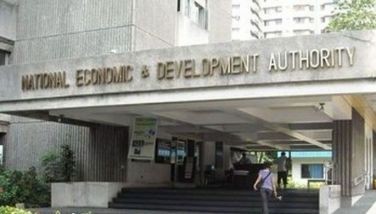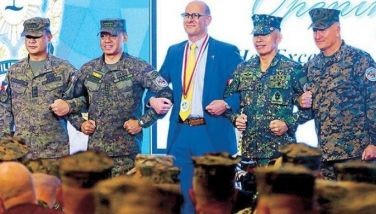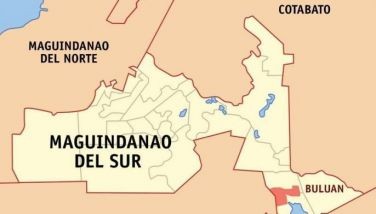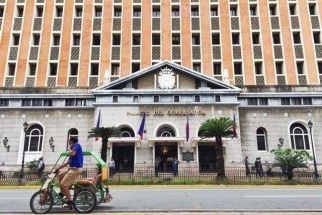SC upholds EDCA
MANILA, Philippines - The Supreme Court (SC) has upheld the legality of the Enhanced Defense Cooperation Agreement (EDCA) with the United States in a decision that is seen to pave the way for greater US military presence in the country.
Voting 10-4 in their first full court session for the year yesterday, the justices dismissed the consolidated petitions against EDCA filed by former senators Rene Saguisag and Wigberto Tañada and militant lawmakers led by Bayan Muna Representatives Neri Colmenares and Carlos Zarate.
The development comes at a time when the Philippines is building up its military capability and firming up regional alliances in the face of China’s aggressive moves in the West Philippine Sea and South China Sea.
A primer on EDCA specifically rules out reestablishment of US bases in the Philippines or permanent deployment of American service personnel on Philippine soil.
Any pre-positioning of US military equipment, vehicles or aircraft in Philippine bases would be done with permission from local military authorities, the primer states.
Chief Justice Ma. Lourdes Sereno penned the majority decision rejecting the petitioners’ argument that EDCA was constitutionally infirm.
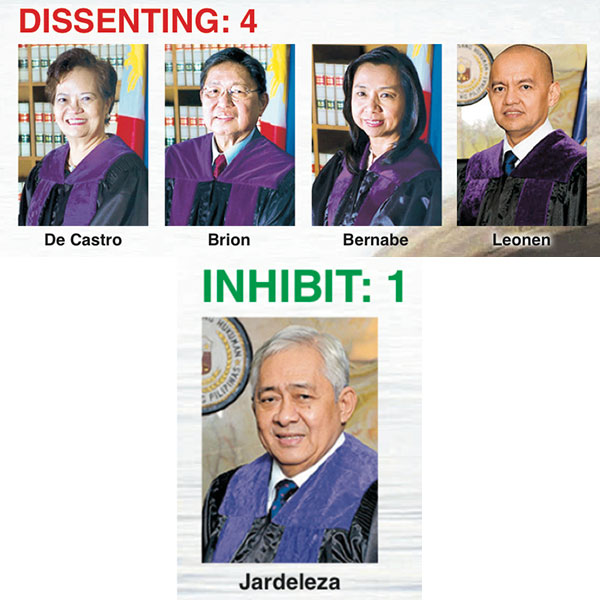
The SC disputed the arguments of petitioners – supported by the Senate through its Resolution No. 105 – that the agreement was a treaty similar to the Visiting Forces Agreement (VFA) and Mutual Defense Treaty (MDT).
“The court disagreed with the Senate’s position submitted to the court by way of Senate Resolution No. 105 expressing its view that EDCA is a form of treaty that needed concurrence by at least two-thirds of all the members of the Senate,” SC spokesman Theodore Te said in a press briefing, citing key portions of the ruling.
The high court pointed out that the law requires Senate concurrence to a treaty and that an agreement can only be considered a treaty when it serves as an “instrument that allows the presence of foreign military bases, troops or facilities.”
The SC emphasized EDCA is “not the instrument that allows US troops or facilities to enter as the VFA already has done that,” citing its earlier ruling that upheld the validity of the VFA.
“The EDCA provides for arrangements to implement existing treaties following entry of foreign military troops or facilities under the VFA and the MDT, and thus may be in the form of an executive agreement solely within the powers of the President and not requiring Senate concurrence under Article XVIII, Section 25 of the Constitution,” Te explained.
The high tribunal also agreed with the executive branch’s position that EDCA complies with the requirement of the law not to go beyond the parameters, limitations and standards set by the treaty it purports to implement.
Instead, the high tribunal held that EDCA is a valid executive agreement that the President is allowed to enter into under Article XVIII Section 25 of the Constitution to implement the VFA and the MDT of the 1950s.
“As an executive agreement, EDCA remains consistent with existing laws and treaties that it purports to implement,” stated the ruling read by Te.
“No court can tell the President to desist from choosing an executive agreement over a treaty to embody an international agreement, unless the case falls squarely within Article XVIII, Section 25,” the SC said in its decision read by Te.
“In the field of external affairs, the President must be given a larger measure of authority and wider discretion, subject only to the least amount of checks and restrictions under the Constitution,” the SC stressed.
Joining Sereno in the majority ruling were nine magistrates: Senior Associate Justice Antonio Carpio and Associate Justices Presbitero Velasco Jr., Diosdado Peralta, Lucas Bersamin, Mariano del Castillo, Martin Villarama Jr., Jose Perez, Jose Mendoza and Bienvenido Reyes.
Associate Justices Teresita Leonardo-de Castro, Arturo Brion, Estela Perlas-Bernabe and Marvic Leonen dissented, while Associate Justice Francis Jardeleza took no part due to his previous handling of the case as solicitor general.
The main decision, as well as the concurring opinion of Carpio and dissenting opinions of De Castro, Brion and Leonen, were not immediately released as they were still being circulated among the justices for signature.
Te explained that the ruling could still be subject to appeal as provided for under court rules.
Asked on the possible effect of the ruling on the Senate’s contrary position, the SC official stressed that the high court has the mandate under the Constitution to resolve constitutional issues.
The high court had reset deliberations on the case three times in November and last month before finally coming up with its decision that was announced yesterday.
The case was heard by the high court in oral arguments in November 2014 and had been up for resolution since December 2014.
Under the EDCA, the US will be allowed to build structures, store as well as preposition weapons, defense supplies and materiel, station troops, civilian personnel and defense contractors, transit and station vehicles, vessels and aircraft for a period of 10 years.
It was signed by Philippine and US officials hours before President Obama arrived in the country for his two-day state visit on April 28 and 29, 2014.
Obama’s pushing hard for EDCA was part of his so-called strategic “pivot” to Asia. He said during his visit that EDCA would give US forces “greater access to Filipino facilities, airfields and ports, which would remain under the control of the Philippines.”
The Philippines hosted two of the largest overseas US military bases until 1992, following a Senate vote to end their leases.
- Latest
- Trending















